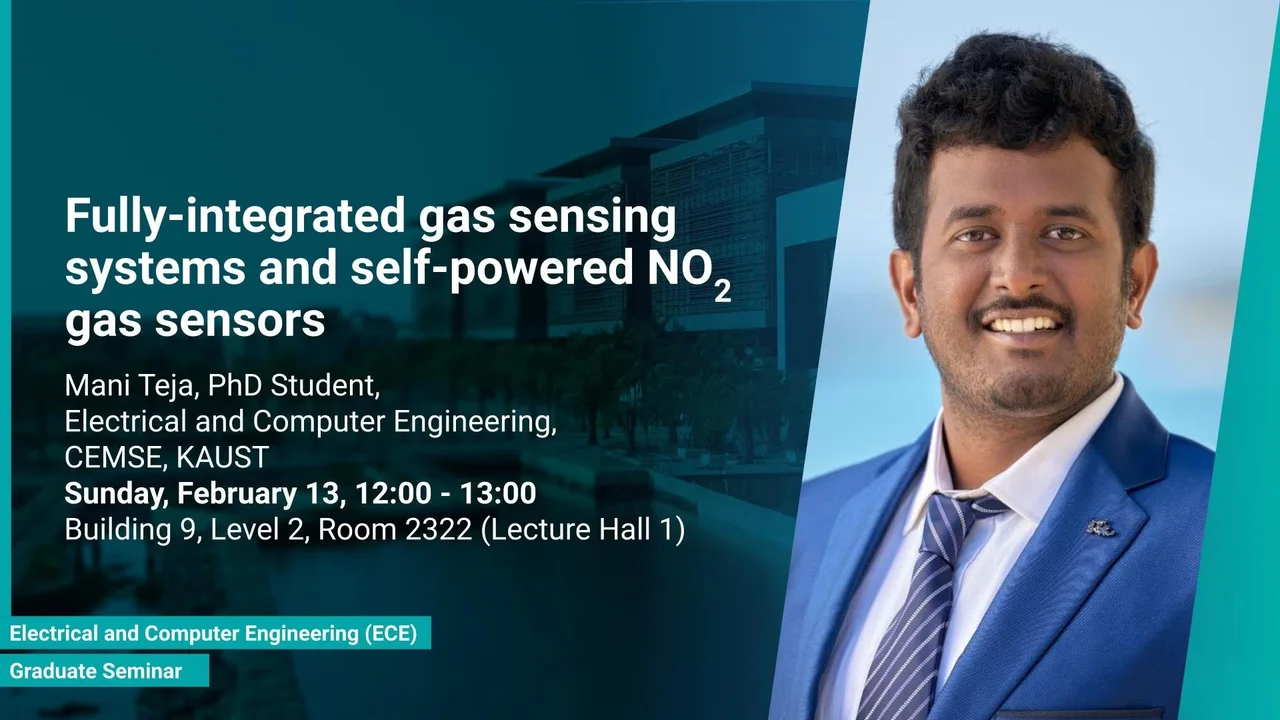
Fully-integrated gas sensing systems and self-powered NO₂ gas sensors
Mobile devices for the personalized detection of health and environmental hazards are becoming the basis for futuristic sensing technologies.
Overview
Abstract
Mobile devices for the personalized detection of health and environmental hazards are becoming the basis for futuristic sensing technologies. In recent decades, air and environmental pollution levels have risen globally. Therefore, environmental protection must be strengthened by developing sensors that detect pollutants. The monitoring of these pollutants with high spatial coverage requires inexpensive electronic gas sensors and self-sustainable sensing systems that can be deployed everywhere. In this talk, I will discuss on technological developments to provide solutions for inexpensive, compact, power-efficient, and easily deployable toxic gas sensors and integrated systems using indium gallium zinc oxide (IGZO) thin-film transistors (TFTs).
The success of personalized monitoring devices relies on the following factors: minimum power consumption, selectivity, and stability under extreme conditions that determine overall performance. One of the best solutions to minimize power consumption in these devices is to have a complementary energy-harvesting feature. Hence, the seminar concludes with the design of self-powered sensors, which are IGZO sensors with self-powering capabilities. Self-powered sensors are p-n heterojunction sensors, developed using IGZO and hybrid-perovskites.
Brief Biography
Mani Teja did his bachelors in Electronics and communications from Jawaharlal Technological University Anantapur, India in the year 2013. He worked as a research associate for Physical Research Laboratory, India for couple of years. He further continued to work as a research associate at IIT Madras, India. Later he pursued his masters in Solid state electronic devices from National Chiao-Tung University (NCTU), Taiwan and graduated in 2018. He decided to pursue his passion being a PhD scholar at Sensors lab, KAUST from January 2018. His research interests include the fabrication and characterization of semiconducting devices and integrated systems for chemical and gas sensing applications. He was the recipient of the CTCI Scholarship-2017 for international students in Taiwan. He recently defended his PhD thesis and will be soon joining Silicon Austria Labs at Austria as Scientist.